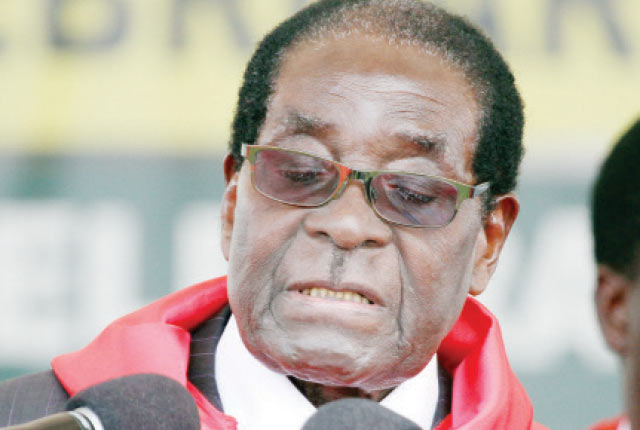US spy chief James Clapper alleges Russia cyber-attack

United States spy chiefs insisted they have strong evidence that Russia mounted an unprecedented bid to disrupt the American election, standing firm in the face of president-elect Donald Trump’s refusal to accept their conclusions.
One day before the heads of four top intelligence bodies brief the president-elect on their assessment of Russian meddling in last year’s vote, Director of National Intelligence James Clapper told a Senate hearing on Thursday that he had “very high” confidence in their findings.
“The Russians have a long history of interfering in elections, theirs and other people’s,” he told the Armed Services Committee. “But we have never encountered such a direct campaign to interfere with the election process as we have seen in this case.
“This was a multifaceted campaign. So the hacking was only one part of it, and it also entailed classical propaganda, disinformation, fake news,” said Clapper.
Clapper, National Security Agency chief Michael Rogers, and Marcel Lettre, undersecretary of defence for intelligence, told the committee in a joint statement that “only Russia’s senior-most officials” could have authorised the operation, in which hackers stole Democratic Party files and emails.
The information was then disseminated via WikiLeaks, embarrassing the Democratic Party and potentially harming losing candidate Hillary Clinton’s White House effort. “Russia has clearly assumed an even more aggressive cyber-posture by increasing cyber-espionage operations,” Clapper said.
The Senate Committee hearing comes a week after President Barack Obama expelled 35 Russian diplomats over the alleged hacking. John McCain, the Republican chairman of the committee, said “every American should be alarmed” by Russia’s meddling in the 2016 presidential election.
There is “no escaping the fact that this committee meets today for the first time in this new Congress in the aftermath of an unprecedented attack on our democracy,” McCain said.
Pressed by McCain, former presidential candidate and organiser of the hearing, on whether the actions constituted an “act of war”, Clapper said that was “a very heavy policy call” more appropriate for other entities in the government to decide.
Obama struck back at Moscow in late December with sanctions aimed at Russia’s leading spy agencies, the GRU, Russia’s military intelligence agency, and the FSB, the successor to the Soviet-era’s main security agency, the KGB, that the US said were involved. Moscow has denied the hacking allegations and dismissed Obama’s sanctions as an attempt to “harm Russian-American ties”.
The committee’s session is the first in a series aimed at investigating purported Russian cyber-attacks against US interests and developing defences sturdy enough to blunt future intrusions.
Trump, who has pledged to bring about a rapprochement with President Vladimir Putin’s Russia after taking office on January 20, has repeatedly dismissed such findings.
He even seemed to have backed WikiLeaks founder Julian Assange’s contention that Russia did not provide him with hacked Democratic Party emails.
Trump, due to be briefed on the findings by the intelligence committee yesterday, claims to have information on the hacking that he will soon make public.
Clapper said politicians will be briefed on the Russian hacking report next week and an unclassified version is tentatively scheduled to be released shortly after that. He said, however, Russia’s hacking “did not change any vote tallies”.
Meanwhile, Trump yesterday tweeted that Mexico will reimburse American taxpayers for a new border wall and that US money spent will be for the “sake of speed”.
His tweet came as top aides consider a plan to ask Congress to ensure money is available in US coffers for the wall, but to rely on existing law that already authorises fencing and other technology along the southern border.
The potential approach was confirmed by two congressional officials and a senior transition official with knowledge of the discussions; all spoke on condition of anonymity because they were not authorised to discuss the matter publicly.
Trump said in a tweet early yesterday: “The dishonest media does not report that any money spent on building the Great Wall (for sake of speed), will be paid back by Mexico later!”
Mexico’s president and other senior officials have repeatedly insisted that Mexico won’t pay for a wall.
— Al Jazeera











Comments